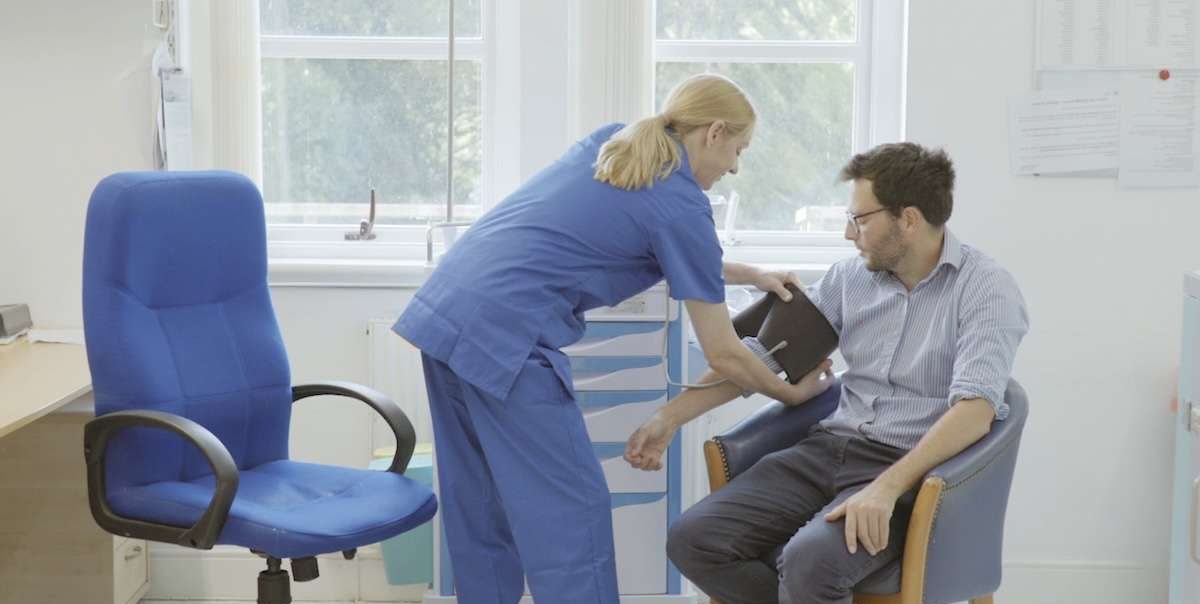
Residential Codeine Detox Treatment
Castle Craig, located in the scenic Scottish Borders, has been a trusted residential rehab facility for over 35 years, offering medically managed detox for a wide range of substance misuse, including codeine dependence. Our priority is supporting your full recovery with care and understanding, within a private and supportive setting. We focus on both your physical and emotional wellbeing through evidence-based therapies alongside a holistic approach. Set within 50 acres of peaceful woodland, our location offers the calm and privacy crucial for a structured detox and codeine rehabilitation. Our dedicated team of experienced doctors and therapists will guide you through every stage of detox and recovery, providing compassionate care and focused treatment.
This article will discuss the key aspects of codeine misuse and recovery, including how long it takes to detox from codeine, withdrawal timelines, common symptoms, essential detox considerations and the role of medications in managing withdrawal. If you’re seeking guidance or more information about Castle Craig’s medically managed inpatient treatment for codeine detox, please contact us on 01721 546 263. Our supportive team is ready to help you take the next steps towards overcoming codeine dependency.
What is Codeine Detoxification?
Codeine detoxification is the process of clearing codeine (an opioid medication used to treat pain) from your body, often the first stage in breaking free from a physical dependence on the substance in question. It is an important initial step in addressing opioid dependency while breaking physical reliance on codeine.
It is strongly recommended that detox from codeine is best carried out under medical management to look after your health and safety. Withdrawal symptoms of varying intensity, depending on your codeine intake history, may occur during detox. However, a medically managed system of support can aim to provide you with a safe codeine detox. A supportive environment can help you manage codeine withdrawal side effects effectively and begin your recovery away from prescription drug dependency.

Start Your Recovery at a Residential Rehab Today
What is a Medically Managed Codeine Detox?
A medically managed detox for codeine involves structured care from trained healthcare professionals who use effective, evidence-based methods to support you throughout your withdrawal. The risks and symptoms associated with detox are carefully looked at, supporting both emotional and physical well-being throughout the process.
The use of prescribed medications for the management of symptoms and making sure that your condition is stable might also be part of the detox treatment. But in every case, constant and consistent monitoring of symptoms is vital during a medically managed detox. The compassionate approach to the process is invaluable in providing the best chances of maintaining comfort and health, especially when the withdrawal symptoms become more intense.
Difference Between Medically Managed Codeine Detox and Medically Supervised Codeine Detox
Medically managed codeine detox provides expert care and comprehensive treatment throughout the process. It prioritises safety while addressing codeine withdrawal symptoms, offering tailored support at each stage. Medically supervised detox, in comparison, may involve less intensive monitoring and fewer therapeutic interventions.
A medically managed codeine detox provides constant professional observation at a qualified opioid rehab facility, offering therapies based on proven practices to encourage stability and recovery. A thorough and attentive approach addresses the physical effects of codeine withdrawal while supporting mental and emotional wellbeing. The reassuring patient-focussed approach creates a strong foundation for long-term recovery from drug dependency.
Free Codeine Addiction Assessment
At Castle Craig, we provide free drug addiction assessments as the first part of your recovery journey. By looking at and understanding your particular rehab journey, we can confidentially understand your unique requirements. Our experienced team can then offer guidance on the best course of action for addressing codeine dependency.
Following your free assessment, we can design a personalised residential treatment plan that focuses on your specific codeine dependency. Our unique approach to each individual means that you will receive the care and support that is right for you. You can then take the steps required to overcome codeine addiction in a safe and nurturing environment, helping you towards lasting recovery. Get in touch with our team on 01721 546 263 to find out more about how we can help.


Benefits of Inpatient Residential Codeine Detox Treatment
Choosing an inpatient codeine residential detox brings a range of advantages. Security and support are two important highlights of the residential approach that provides a confidential, supportive environment where patients can focus fully on their recovery. With access to round-the-clock professional care, patients can safely manage withdrawal symptoms while receiving the emotional and psychological support they need to heal.
Below, we’ll explore specific benefits of inpatient codeine detox treatment, including medically managed care, structured support, and plans designed for long-term success. Each element plays a vital role in creating a safe, effective recovery experience.
-
Medically Managed Codeine Withdrawal in a Safe Setting
One of the most significant benefits of residential detox is the medical oversight it offers. Withdrawal from codeine can lead to uncomfortable and, at times, severe symptoms that require professional attention. In a controlled setting, a trained medical team monitors your progress, intervening promptly to manage any complications or discomfort that may arise.
This approach makes sure of your safety throughout the codeine detoxification process. With personalised care methods in place, your team can adjust treatments as needed to support both your physical and emotional well-being, helping you stay on track during this critically important first stage of recovery.
-
Structured Support to Manage Withdrawal Symptoms Effectively
Structured support is key to navigating withdrawal symptoms successfully. Residential detox facilities offer carefully planned schedules that combine medical care with emotional guidance. The overall treatment structure provides stability during a potentially overwhelming time, making sure you always know what to expect and who to turn to for help.
Patients also benefit from evidence-based therapies that target both the physical and psychological aspects of withdrawal. From managing cravings to addressing sleep disturbances, every element of your treatment is designed to reduce discomfort and keep you progressing towards a healthier state.
-
Immediate Access to Codeine Addiction Treatment Services
Residential care plans provide immediate access to a range of treatment services customised to your specific needs. From the outset, you can rely on a team of addiction specialists who are ready to address your unique circumstances.
This immediate availability also extends to essential resources, such as addiction counselling and therapeutic support. Whether you need assistance managing emotions or strategies for curbing cravings, help is always within reach, giving you the tools to maintain momentum in your recovery.
-
Breaking the Cycle in a Controlled Environment
One of the biggest challenges in overcoming codeine addiction is breaking the cycle of dependency. Residential detox provides a controlled environment free from triggers and access to substances, creating a protective barrier that supports your determination to quit.
By removing the distractions and pressures of daily life, you can focus solely on your recovery. This unique setting is designed to offer you the skills and confidence needed to resist relapse and develop healthier coping mechanisms.
-
Tailored Treatment Plans for Long-Term Sobriety
Every patient’s experience with addiction is different and rehab treatment should reflect that. Residential drug detox facilities offer customised care plans that consider your specific medical history, personal preferences and recovery objectives. These plans are designed to address the root causes of dependency while providing targeted strategies for long-term success.
This personalised approach not only increases your chances of sustained recovery but also aims to make you feel understood and supported throughout your detox experience. With expert guidance, you’ll be equipped to build a solid foundation for lasting sobriety.
-
Emotional and Psychological Support Throughout Detox
Detoxing from codeine can be an emotionally challenging time. Professional support is essential in helping you deal with troubling thoughts and feelings that may arise. Professional therapists and counsellors can work with your particular experience with codeine misuse to increase the chances of you beginning a healthy recovery during drug detox.
By communicating with you sensitively and compassionately, medical staff can help you understand the factors that may have contributed to your substance misuse experience. One-to-one and group counselling sessions are often a valuable way to communicate your feelings. The information gained during these sessions could also be usefully applied to providing coping strategies for future challenges.
-
Smoother Transition from Detox to Ongoing Codeine Rehab
Recovery doesn’t end after detox; it’s just the beginning. A major benefit of private inpatient detox facilities is the seamless transition they provide for continuing treatment with ongoing codeine rehab. A constructive residential care plan can prepare you for the next steps, offering resources and recommendations that promote your continued progress.
After a medically managed detox for codeine, you could progress to outpatient therapy, group support and ongoing aftercare therapy. The aim of a post-detox therapy service is to keep up the momentum you have gained through completing this essential part of dealing with a codeine dependency. Continuity of care and ongoing support makes a healthy and sustainable recovery more likely.
-
A Peaceful Environment to Begin the Path to Recovery
A calming and tranquil environment for rehabilitation from codeine misuse offers a significant advantage to the healing process. Residential detox facilities that feature comfortable and peaceful spaces allow for a more focussed opportunity to reflect on recovery.
A serene setting encourages relaxation, which can provide you with the space and motivation to continue with your particulate substance misuse recovery. Inpatient residential care facilities that incorporate confidential and secure features allow you to move on with your recovery journey in confidence.
Private Medically Managed Codeine Detox Centre Near Me
If you’re searching for a safe and supportive place to begin your recovery from codeine dependence, finding a reputable, private codeine detox facility is an essential step. A medically managed detox care plan offers the professional care and supervision you need to feel confident that your symptoms are looked after effectively, setting the foundation for a lasting abstinence.

Contact Castle Craig Residential Detox Centre
Set in the Scottish Borders countryside at West Linton, Edinburgh, United Kingdom, EH46 7DH, Castle Craig provides a tranquil setting for healing and recovery. Our serene environment, paired with expert care and a beautiful residential centre, creates the ideal space for you to focus on overcoming codeine addiction.
Find Us
01721 546 263
info@castlecraig.co.uk
Castle Craig,
West Linton, Edinburgh, United Kingdom, EH46 7DH
To learn more about our residential treatment care plans for drug and codeine addiction, call us on 01721 546 263. Our compassionate team is here to answer your questions, offer guidance and help you take the first step towards reclaiming your life.
-
How to Find Private Inpatient Codeine Detox Centres Near You
Finding the right inpatient detox facility can feel overwhelming, but breaking it down into easier to follow steps can help simplify your search. Look for a facility with medical expertise, round-the-clock care and unique care plans to meet your needs. Consider the following tips when searching for private codeine detox centres near you.
- Search for “Private Codeine Detox Near Me” or include your location: Start by using location-specific searches like “private inpatient codeine detox near me” or “medically managed codeine detox UK” to identify nearby private rehab options.
- Look for Medical Supervision and 24/7 Support: A medically managed detox offers 24/7 medical supervision to secure your safety and comfort. Search for a rehab clinic that provides managed detox services led by experienced professionals.
- Read Reviews and Testimonials: Reading online patient reviews can provide an honest assessment of a rehab clinic’s detox services. Reviews and feedback could offer valuable insight into the overall quality of accredited rehab centres as you go about your search.
- Consider What’s Included in the Care Plan: Look for facilities that offer personalised plans and adaptable therapy options. It’s also a good idea to look for ongoing therapy options to help with long-term goals.
- Enquire About Costs and Payment Options: Ask for a clear breakdown of the drug rehab costs involved to understand what is required and when. Some rehab facilities may offer payment plans or financial support to make treatment more accessible.
- Check if They Accept Health Insurance: If you have private medical insurance, verify with the codeine detox rehab centre to see if they accept your provider. You could then inquire about what coverage is available for codeine detox.
Find Out About Our Residential Codeine Detox Treatment
Castle Craig provides free drug addiction assessments for codeine addiction as part of our admissions process. The confidential assessments provide a supportive starting point for your recovery. Our caring team is ready to listen and guide you through the first steps toward a healthier and more fulfilling life. Contact us via our secure contact form to start your path to lasting change.
After your complimentary assessment, we’ll develop a customised, medically managed detox care plan suited to your individual needs. Our skilled team focuses on codeine addiction recovery, using evidence-based approaches and continuous support to encourage long-term healing. Contact us today to discover how we can help you take back control of your life.
Free Codeine Addiction Assessment
Taking the first step and asking for help can feel daunting, but our team is here to assist you.
Signs, Symptoms and Effects of Codeine Withdrawal & Detoxification
Codeine withdrawal can present a variety of physical and psychological symptoms as your body adjusts to functioning without the drug. Below, we outline some common signs, symptoms and effects you may experience during codeine detoxification. Although this is not a complete list, it can help you understand what to expect during the withdrawal and detox process.
-
Early Signs of Codeine Withdrawal
Early withdrawal symptoms often begin within a few hours to a day after your last dose. The following are initial signs that show your body has started the codeine withdrawal process.
- Anxiety or restlessness: You may find it difficult to relax, with a persistent feeling of restlessness and unease. This feeling can heighten a general anxiety as you begin the process of codeine withdrawal.
- Yawning and watery eyes: Frequent yawning and excessive tearing are common physical signs of early withdrawal as your body begins to adjust.
- Sweating: You may notice increased sweating, even in cooler temperatures, as your body tries to regulate itself without codeine.
- Trouble sleeping (insomnia): You may experience difficulty falling or staying asleep, leaving you feeling fatigued and frustrated as you begin withdrawal from codeine.
- Muscle aches or stiffness: General muscle pain or stiffness could be a factor that causes discomfort as your body reacts to the absence of codeine.
-
Moderate to Severe Symptoms of Codeine Withdrawal Syndrome
More intense opioid withdrawal symptoms could appear within one to three days, depending on your codeine use history and how frequently you took the drug.
- Intense drug cravings: You may experience an overwhelming desire to use codeine again, as your body seeks relief from withdrawal discomfort.
- Nausea and vomiting: As your digestive system adjusts, the discomfort of nauseous feelings and vomiting could be a further physical sign of codeine withdrawal.
- Diarrhoea: The body’s response to detoxification from codeine can upset your stomach, leading to loose stools or diarrhoea.
- Abdominal cramps: Sharp pains or cramps in the stomach area often accompany gastrointestinal symptoms during moderate codeine withdrawal.
- Rapid heartbeat or high blood pressure: Increased heart rate or elevated blood pressure may arise as your body’s stress response to codeine withdrawal symptoms.
-
Psychological Effects of Codeine Withdrawal
Psychological symptoms relating to codeine withdrawal can often persist during and beyond the physical detox phase. Mental and emotional responses to codeine withdrawal can appear in carrying degrees of intensity depending on each patient’s individual circumstances.
- Depression or low mood: Feelings of sadness or emotional numbness may emerge as your brain chemistry begins adapting without codeine.
- Irritability and mood swings: You might feel unusually short-tempered or experience sudden emotional changes, which could affect daily interactions.
- Anxiety or panic attacks: Heightened anxiety or occasional panic attacks may be triggered, making relaxation feel challenging during the withdrawal phase.
- Difficulty concentrating: Trouble focusing on tasks or making decisions is a common side effect of withdrawal-related mental fog.
- Lack of motivation: Reduced energy levels and disinterest in everyday activities can be a sign of your body and mind adjusting.
-
Physical Signs and Symptoms During Codeine Detoxification
Physical signs often persist throughout the detoxification process. The following symptoms could be present as your body adapts to the absence of codeine.
- Chills or goosebumps: You may feel sudden chills, accompanied by goosebumps, even in warm environments during a detox from codeine.
- Runny nose: In some ways, a codeine detox can mirror cold-like symptoms, with a runny nose being a familiar symptom of both.
- Dilated pupils: An observable physical change during withdrawal is when the centre of your eyes are larger than normal. This could be a particularly noticeable effect of codeine withdrawal.
- Headaches: Chronic headaches, as well as dehydration, could be made apparent by the stress of withdrawal from codeine.
- Fatigue or weakness: Feeling unusually tired or physically weak is often a symptom as your body rests and recuperates without the drug.
-
Long-Term Effects Without Proper Detox Support
Without appropriate medical and emotional support during the detox process, long-term complications can develop. Not having the right management or support could make recovery during a codeine detox more difficult.
- Chronic anxiety or depression: Emotional distress, including feelings of sadness, anxiety and disconnection, may become more pronounced without structured detox care.
- Persistent cravings and relapse risk: A lack of professional support for the intense cravings for codeine during a detox process increases the risk of returning to the drug.
- Sleep disturbance: Long-term impacts on sleep patterns can lead to insomnia or poor quality rest over time.
- Emotional instability: Codeine withdrawal without medical support can make it challenging to regulate emotions and achieve stability.
- Difficulty managing pain or stress without substances: Without learning coping methods, dealing with pain or stressful situations can feel overwhelming and increase relapse risk.
Understanding the signs, symptoms and effects of withdrawing from codeine highlights the need for clinical help, as detoxification should not be attempted alone. A medically managed detox provides the necessary foundation for a more supportive, safer recovery process.

Medications Used for Codeine Detoxification
Medications can sometimes be used during a detoxification for codeine dependency to ease some of the withdrawal symptoms. Whether or not it is a medication assisted detox will be decided on a case by case basis, depending on the patients’s particular circumstances. Below are some of the medications that could be used during a codeine detox:
- Buprenorphine: Opioid withdrawal symptoms could potentially be managed with buprenorphine, which can partially activate opioid receptors to reduce discomfort without the euphoric feelings sometimes associated with codeine. Though less addictive than other opioids, buprenorphine can still cause dependence or withdrawal if misused, so it should only be taken under professional supervision.
- Methadone: Methadone is sometimes used to reduce withdrawal symptoms and cravings, offering controlled relief during a period of tapering off codeine or a fully managed detox. While effective for managing pain and opioid dependence, methadone carries a risk of addiction and serious side effects if not used properly, so it should only be taken within a clinical setting.
- Clonidine: Clonidine could be used to alleviate symptoms like anxiety, sweating and rapid heartbeat by calming the nervous system. Intense withdrawal symptoms of codeine detox could potentially be calmed when administered under clinical care.
- Lofexidine: Llofexidine works in a similar way to Clonidine and helps to reduce symptoms associated with opioid detox. Symptoms like twitching, yawning and sleep problems can be targeted with the drug.
- Naltrexone: The effects of opioids can be effectively blocked by Naltrexone, helping to support sobriety and prevent relapse after codeine detox is complete.
- Naloxone: Naloxone could be used to reverse opioid overdoses in emergencies During a codeine detox, it helps to block codeine’s effects if the drug is taken again.
- Gabapentin: Symptoms associated with detox such as anxiety, restlessness, and nerve pain could be targeted with gabapentin, offering some relief during detox.
- Anti-nausea Medications (e.g., Ondansetron): Withdrawal from codeine and other opiates can cause intense gastrointestinal discomfort. Anti-nausea medications can help address these symptoms, helping patients feel more comfortable.
- Sleep Aids (e.g., Melatonin, Hydroxyzine): Sleep disturbances are a common codeine withdrawal symptom during detox. Sleep aids like melatonin or hydroxyzine could promote much needed rest.
- Over-the-Counter Pain Relief (e.g., Paracetamol, Ibuprofen): Commonly known over-the-counter painkillers could be used to relieve muscle aches, headaches or general physical discomfort during codeine withdrawal.
At Castle Craig, our approach to the use of detox medications is conducted with the highest level of responsibility so that they do not result in a new dependency. We understand that this may be a concern for some patients, and we are here to assure you that codeine detox medicines are prescribed only when clinically necessary and are closely managed under the care of our Consultant Psychiatrist and experienced medical staff.
Our goal is to alleviate withdrawal symptoms safely while focusing on your overall recovery and the goal of abstinence. By using evidence-based protocols and regularly assessing your progress, we only use detox medications as a short-term tool to support your transition into sobriety, always prioritising your long-term health, well-being and abstinence.

Contact Castle Craig Today
Get in touch with Castle Craig to learn more about our residential treatment options and admissions process. Our dedicated team is ready to assist you in booking a free addiction assessment that will provide both you and us with the relevant information for creating a personalised treatment plan.
Call 01721 546 263 today to talk to a compassionate professional. Alternatively, complete our secure online form here to begin your recovery journey. Every step brings you closer to the care and support you deserve.
Does Health and Medical Insurance Cover Codeine Detoxification Treatment?
Yes, many health and medical insurance providers offer coverage for codeine detoxification treatment, though the extent depends on your policy and provider. It’s important to confirm what costs your plan covers.
Castle Craig is pleased to accept private health or medical insurance, and our team can guide you through our insurance admissions process to reduce any financial stress or worry.
How Much Does Residential Codeine Detox Cost?
The cost of codeine detox within a residential rehab care plan in the UK typically ranges from £650-£1,500 daily or £4,500-£10,000 weekly. These figures can vary as detox timeframes depend on the severity of your codeine dependency or the recommendations of the medical specialist managing your treatment.
Opioid rehab costs can also differ based on your specific needs and the details of your personalised treatment plan. Investing in tailored care offers the most effective support for lasting recovery, designed to address your unique circumstances. Here at Castle Craig, our admissions team is here to guide you through the process with compassionate care.
Codeine Detox Timeline and How Long It Takes
Detoxing from codeine is just the first step in the broader opioid rehabilitation process. Following codeine detox it may be recommended to follow a full course of recovery from codeine. If you are wondering, “how long does it take to detox from codeine?” a typical detox timeline below can help you understand the process:
-
Stage 1: Early Withdrawal Symptoms (6–12 Hours After Last Dose)
The first withdrawal symptoms from codeine often begin within 6–12 hours after the last dose. Typically mild, but uncomfortable side effects of cravings and sweating, plus feelings of anxiety could be experienced during this period.
For this stage, it is important to establish a supportive environment, with qualified medical professionals on hand to make patients feel as comfortable as possible. This way, you can feel reassured that a compassionate team of medics are available to assist with any codeine withdrawal symptoms that arise.
-
Stage 2: Peak Codeine Withdrawal Symptoms (24–72 Hours)
Withdrawal symptoms associated with detox from codeine usually peak between 24 and 72 hours. Patients may experience nausea, intense aches and stomach cramps, as well as difficulty falling or remaining asleep.
Proper medical supervision is especially important during this stage. Medical professionals can assess the severity of your symptoms and provide assistance and reassurance, helping you through the more difficult stages of the codeine detox timeline.
-
Stage 3: Subsiding Symptoms and Stabilisation (3–7 Days)
By day 3 to 7, the more intense of the physical symptoms could begin to reduce and patients begin to move into a more stable phase. Although some discomfort may well continue, the body will gradually begin to adjust to being codeine-free.
Clearing your body of codeine allows you to take the first vital step toward recovery. By moving forward into a personalised rehab care plan, such as the codeine dependency rehab plans offered by Castle Craig, you could gain the tools, strategies and support needed to maintain and build on your hard-earned progress.

Related Guides on Medically Managed Residential Detox
Detox Centre | Inpatient Detox | Alcohol | Drugs | Cocaine | Heroin | Crystal Meth | Valium | Tramadol | Benzodiazepines | Xanax | Codeine | Opioid | Ecstasy | Morphine |
Inpatient Medically Managed Codeine Detox Treatment Admissions Process
Castle Craig’s comprehensive detoxification admissions process is designed around each patient’s needs. Below is an outline of what you can expect:
- Initial Enquiry and Confidential Consultation: Your initial contact with us begins with a confidential and discreet consultation where we learn about your particular experience with codeine misuse. Any questions you may have can be addressed by our friendly team during this consultation.
- Pre-Admission Codeine Addiction Assessment: You’ll undergo a detailed assessment to determine the best treatment plan for you, customised to your specific needs and health concerns. The information gained through this secure consultation will form the basis for your care plan for codeine detox and rehab.
- Confirm Insurance or Private Pay Options: To ease any concerns about finances or paying for treatment, our admissions team could verify any insurance coverage you may have. Other payment methods can also be outlined if required to provide a clear understanding of costs.
- Confirmation of Admission and Booking: Once all details are finalised, your place can be booked, and we get your place booked into the care plan. We’ll then send out all the relevant information needed for your stay at the facility, including what to bring, what to expect and how to get to the facility.
- Arrival for Codeine Detox and Rehab Treatment: As soon as you arrive at our detox facility, you’ll be warmly welcomed and introduced to your specific care team. They will outline the procedure and reassure of the ongoing 24/7 support that you will receive throughout your detox and rehab treatment.
Your well-being is at the heart of everything we do at Castle Craig. If you have any questions or would like support with starting your codeine rehab admissions process, don’t hesitate to reach out to us.
Questions About Detox for Codeine?
Contact us to discuss your treatment needs with a licensed clinician.
Find Out About Our Residential Drug Detox Treatment
Castle Craig offers free residential addiction assessments at the start of treatment to help you understand your needs and available options for codeine detox and rehab. Our compassionate team is here to guide you at every step.
We also create customised treatment plans and provide accurate pricing tailored to your individual circumstances. To begin your recovery, call us today on 01721 546 263, or fill out the online form below and we will get back to you.
Free & Confidential Assessment
Compassionate, expertly delivered evidence-based practices and a patient-centred approach are at the heart of our treatment model. Request a call-back from one of our professionals on any day of the week.
-
Statistics on Codeine in the UK
- 17% of all people starting substance misuse treatment in 2021-2022 were currently injecting or had previously injected drugs.
- Codeine linctus, a cough medicine, has been reclassified as prescription-only due to fears of misuse and addiction.
- The number of people in residential rehabilitation for substance misuse has also increased from 5,066 in 2022 to 5,438 in 2023.
- Among adults aged 16 to 59 in England and Wales, 9.5% reported using drugs in 2023, with misuse of prescription medications like codeine being a growing concern.
- Codeine contributed to a notable proportion of opioid-related fatalities in the UK during 2023.